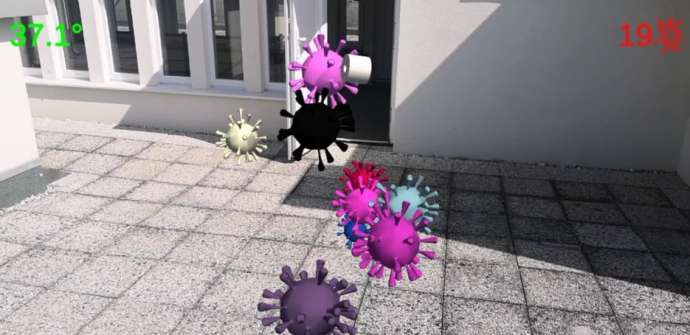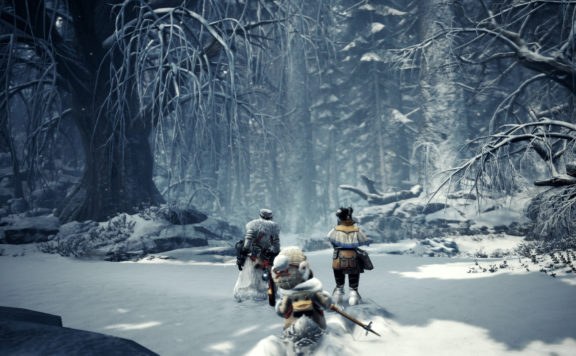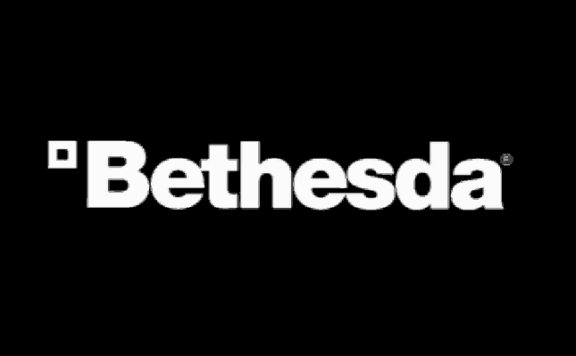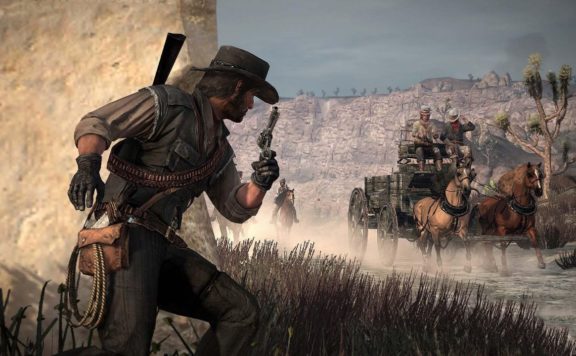You know the old stereotype of gamers, 13-year-old nerds and 25-year-old losers living in their parent’s basement. It’s sort of ironic that the people propagating the stigma that gaming is child’s play and something you should grow out of are the same people who rush home from work to watch Wheel of Fortune every single day of their lives because it’s so thought-provoking. But in reality, video games are a multi-billion-dollar industry (planned to hit nearly $200B by 2022) and a hobby that transcends age, gender, and socioeconomic barriers to be shared by an expected 2.6 billion gamers in 2020.
So, no, gaming isn’t just a frivolous waste of time or money that places an undue burden upon our society. Just the opposite, in fact, can be said about gamers who always seem ready to stand up and champion a cause or help others in a time of need. That has never been as prevalent as our current crisis, with people staying home to slow the spread of COVID-19 turning to video games for comfort, and even much-needed social interaction, as they wait for the tide to turn.
The gaming community, encompassing everyone from the lone gamer to the industry giants, have found so many ways to help out as we push through the COVID crisis. With some areas of the country starting to ease back to normal, instead of writing some silly rant about hating battle royale games, I figured I would actually be useful and highlight a few of the ways the gaming community has helped since the COVID-19 pandemic has started.
We Stayed Home
One of the most effective ways we can slow the spread of the Coronavirus is to just stay at home as much as possible. And what better way to spend that time than playing games? Not only do games give you a way to pass the time, but multiplayer games also give you a chance to interact with other people. Just remember to thank the other players for keeping you company as you snipe them from across the battlefield.
We Folded Things
Even the most hardcore gamers have to take a nap every now and then. During that downtime, people have been donating their unused computing power to help in the hunt for a cure through the Folding@home software. Released to the public in 2000, Folding@home runs simulations to find ways to attack the coronavirus (very simplified explanation, check out all the scientific stuff here if you are interested). These simulations are extremely complicated and usually require supercomputers to process them. That’s where our wimpy PCs come in. The Folding@home project breaks those simulations into little chunks, which are then processed by our computers. The results are then uploaded and combined together to create a complete model.
Just how much computing power is donated is mindboggling, with hundreds of thousands of users donating an estimated 1.5 Exaflops (a flop is 1 operation per second, and Exaflop is 1 quintillion operations per second). In comparison, the world’s largest supercomputer is capable of 148.6 petaflops, or roughly one-tenth of the computing power that is being donated to Folding@home.
There’s still time for you to join in! You can download the Folding@home software here. The most recent version of the software even allows you to prioritize COVID-19 projects.
Game Developers Kept People Working
As other industries have virtually shut down and had to lay employees off, the gaming industry has tried to keep its employees working. Game developers, along with many other tech-based companies, were some of the first to adopt a work from home model to help keep their employees safe.
A Game About Pandemics Donated To Fight One
In Plague Inc. players create a virus and unleash it on the world in an attempt to wipe out the human race. Ndemic Creations, the indie developer that brought us Plague Inc. made a $250,000 donation, split between the Coalition of Epidemic Preparedness Innovations and the WHO COVID-19 Solidarity Response Fund. Ndemic is also developing a new mode for Plague Inc. that will allow players to fend off an outbreak instead of start one. Take that Coronavirus!
We Paid More Than We Had To
In March video game software, hardware, and accessories in the US saw a 35% increase over the same month in 2019; no surprise considering everyone was looking for something to play. The nice surprise is the Humble Conquer COVID-19 Bundle raised over $6.5 million for COVID relief in a single week. The bundle featured $1000 worth of games and ebooks for just $30. Like all Humble Bundle offers you can always pay more, and one contributor took that to heart by paying a whopping $10,000. Wow, just wow.
The Companies We Love To Hate Did The Right Thing
If there is one thing gamers like doing more than playing games it’s bitching about the giant companies that make them. When it comes to COVID-19, though, many of the large developers have stepped up to help with relief efforts:
- Bethesda not only added NPCs to Fallout 76 they also pledged to donate $1M to COVID relief
- Sony announced the Play At Home Initiative, giving PS4 owners a couple of free games as well as setting up a $10M fund to help indie developers weather the storm.
- Bungie has partnered with Direct Relief with their Guardian’s Heart initiative, raising $350,000 in the first 24 hours of the fundraiser.
- Ubisoft donated $150,000 to the WHO relief fund
- 343 Industries (developer of Halo Infinite) generated $430,000 by selling special edition shirts. The proceeds went to the GlobalGiving Coronavirus Relief Fund
- Rockstar Games is donating 5% of GTA Online and Red Dead Online revenue from April 1 through May 31.
- CD Projekt Red donated $950,000 to COVID-19 relief in Poland.
The list goes on and on. Gamesindustry.biz has an exhaustive list of all the good going on.
Developers Gave Us Free Games
Sony hasn’t been the only company to hand out some free games:
- Standing Stone Games opened up all in-game content for Dungeons And Dragons Online and Lord Of The Rings Online for free. Initially scheduled to end on April 30, the free content has been extended until May 31.
- Slovenian developer Rok Bermez created a free to play augmented reality game, CoronAR, where you combat the Coronavirus by throwing toilet paper at it. I have it on good authority that no toilet paper was harmed in the creation of the game.
- Researchers at the University of Washington created the game Foldit. Unlike Folding@home that uses your computer while you are away, Foldit helps in the fight against COVID-19 as you play it. Check out all you need to know about the game on the filament games blog.
Influencers Influenced Us
On March 28th, Twitch Stream Aid 2020 raised over $2.7M for COVID-19 relief. Beyond the talent showcased in the 12-hour event, other content creators across many platforms have reached out to their communities to help raise funds earmarked for COVID relief. Whether your community is big or small, whether you have raised hundreds of thousands of dollars or just a hundred, we all owe a big thank you for donating your time.











